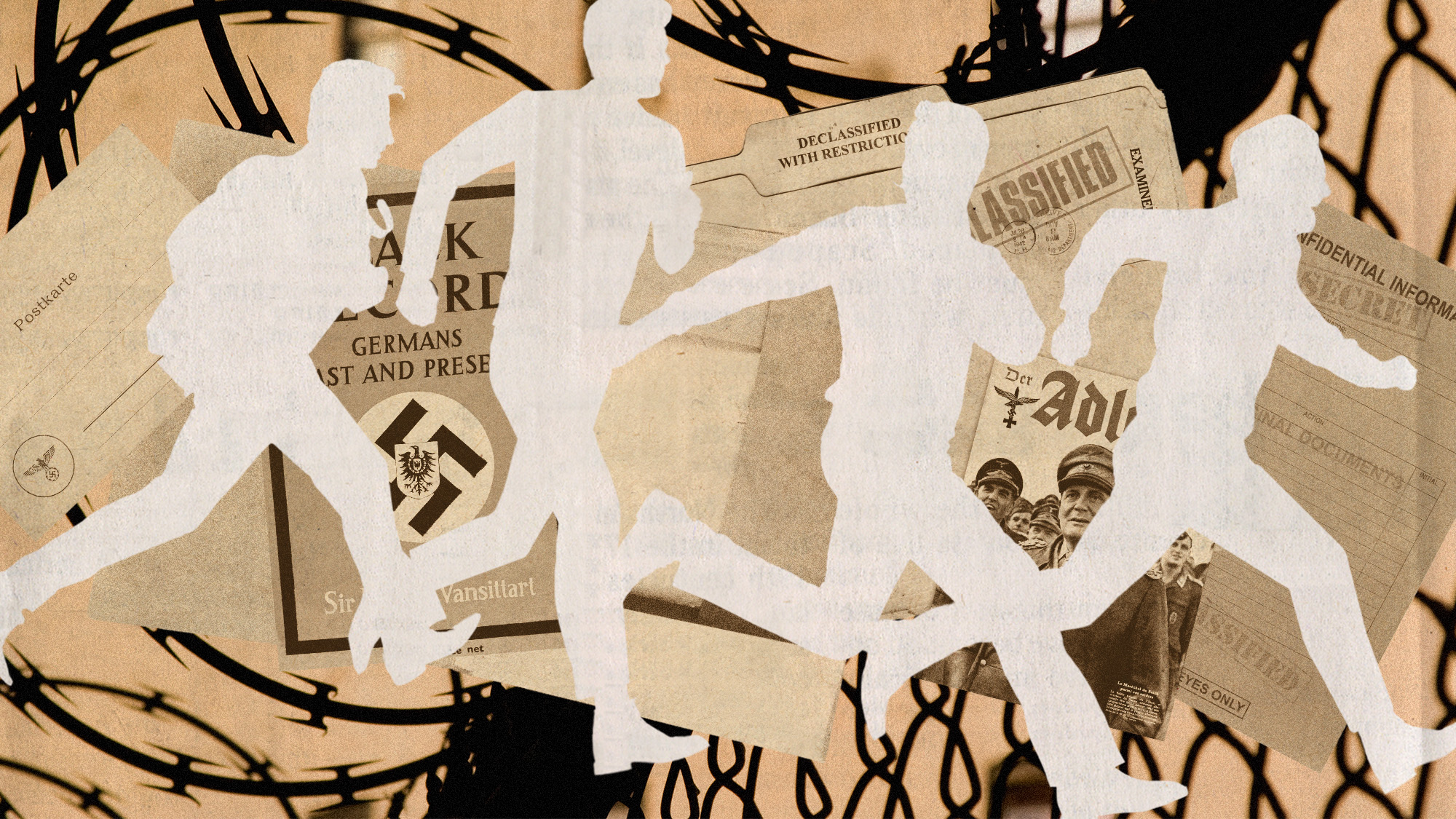Argentina lifts veil on its past as a refuge for Nazis
President Javier Milei publishes documents detailing country's role as post-WW2 'haven' for Nazis, including Josef Mengele and Adolf Eichmann

A free daily email with the biggest news stories of the day – and the best features from TheWeek.com
You are now subscribed
Your newsletter sign-up was successful
"I thought all the Nazis ran away to Argentina." That line in the 2024 film "The Holdovers" got "a big laugh in cinemas in Buenos Aires", said Sam Meadows in The Spectator. Audiences recognised the uneasy truth: the flight of thousands of Nazi party members to Argentina after the Second World War remains "an extremely uncomfortable period" in the country's history.
Argentina has not been good at "reckoning with its past as a haven for war criminals". President Javier Milei, however, "appears to have changed tack". On 29 April, he released 1,850 documents from the national archives containing details, said the Buenos Aires Herald, of "prominent Nazi criminals who escaped to Argentina" – including Josef Mengele, the notorious Auschwitz doctor known as the "Angel of Death".
'A haven for Nazis'
Most of the documents, a mix of police and intelligence agency files, were declassified in 1992 but "remained almost impossible to access", said The Times. They were only viewable "by appointment, in a single designated room".
The Week
Escape your echo chamber. Get the facts behind the news, plus analysis from multiple perspectives.

Sign up for The Week's Free Newsletters
From our morning news briefing to a weekly Good News Newsletter, get the best of The Week delivered directly to your inbox.
From our morning news briefing to a weekly Good News Newsletter, get the best of The Week delivered directly to your inbox.
Milei pledged to "lift the shroud with which Argentinian governments have long concealed the level of assistance that their predecessors provided to war criminals". And the documents, now viewable online, confirm "a long-known dirty secret": the "ease" with which senior Nazis lived in Argentina. "At one point," said defence minister Luis Petri, "Argentina became a haven for Nazis".
Mengele, "notorious" for his inhumane experiments on prisoners, arrived in 1949 and lived under "various aliases", said The Times of Israel. The documents include "nearly 100 pages detailing his time in Argentina" and show, for the first time, that he filed a request to travel from Argentina to West Germany in 1959, using his real name, according to German public broadcaster MDR. This means "several countries likely had more accurate information on Mengele than previously thought," said historian and Nazi expert Bogdan Musial.
There are also several files on Adolf Eichmann, another SS officer and one of the principal architects of the "Final Solution". He arrived in Argentina in 1950 under an alias.
The Supreme Court in Buenos Aires has also discovered Nazi material among its archives, reported The Associated Press on Sunday. An anonymous judicial authority said the court had come across boxes of photos, postcards and propaganda "intended to consolidate and propagate Adolf Hitler's ideology" in Argentina during the Second World War. The court's president, Horacio Rosatti, has ordered "a thorough analysis".
A free daily email with the biggest news stories of the day – and the best features from TheWeek.com
Exposing the 'ratlines'
The Nazi officials who fled to Argentina may be "long dead" but "their hunters insist their work is not done", said The Times. The Simon Wiesenthal Center, a US-based human rights organisation, wants to "expose" the so-called "ratlines" – the networks, individuals and institutions that helped Nazis flee Europe and start new lives in South America. For nearly 20 years, the NGO has petitioned successive Argentine governments to release the files.
In January, the US Senate Judiciary Committee released two reports into Swiss bank Credit Suisse, concluding that "70 Argentine accounts with plausible links to Argentina-based Nazis" were opened with the bank after 1945. And, the report claimed, one of these accounts was still active as recently as 2022.
A previous investigation had found also "significant connection" between Credit Suisse and individuals who ran the ratlines, said Le Monde. "Money is not innocent," Ariel Gelblung, the Latin America director of the Simon Wiesenthal Center, told the paper. Credit Suisse, which was taken over by the UBS Group in 2023, has pledged to provide "all necessary assistance". And after meeting with representatives from the Simon Wiesenthal Center earlier this year, Milei ordered the release of the documents.
In a 1999 report by the Commission of Enquiry into the Activities of Nazism in Argentina, historian Holger M. Meding "identified the facilitators of Nazi exfiltration to Argentina" as the Catholic Church and the Red Cross, said Le Monde. But the role of then-President Juan Perón was "decisive". Perón had "a preference for all things German", wrote Meding.
It might have been this that spurred Milei's decision to release the files, said The Spectator's Meadows. The president has "made no secret of his hatred of Peronism", and these documents could lead to "further scrutiny" of Peron's role.
Harriet Marsden is a senior staff writer and podcast panellist for The Week, covering world news and writing the weekly Global Digest newsletter. Before joining the site in 2023, she was a freelance journalist for seven years, working for The Guardian, The Times and The Independent among others, and regularly appearing on radio shows. In 2021, she was awarded the “journalist-at-large” fellowship by the Local Trust charity, and spent a year travelling independently to some of England’s most deprived areas to write about community activism. She has a master’s in international journalism from City University, and has also worked in Bolivia, Colombia and Spain.